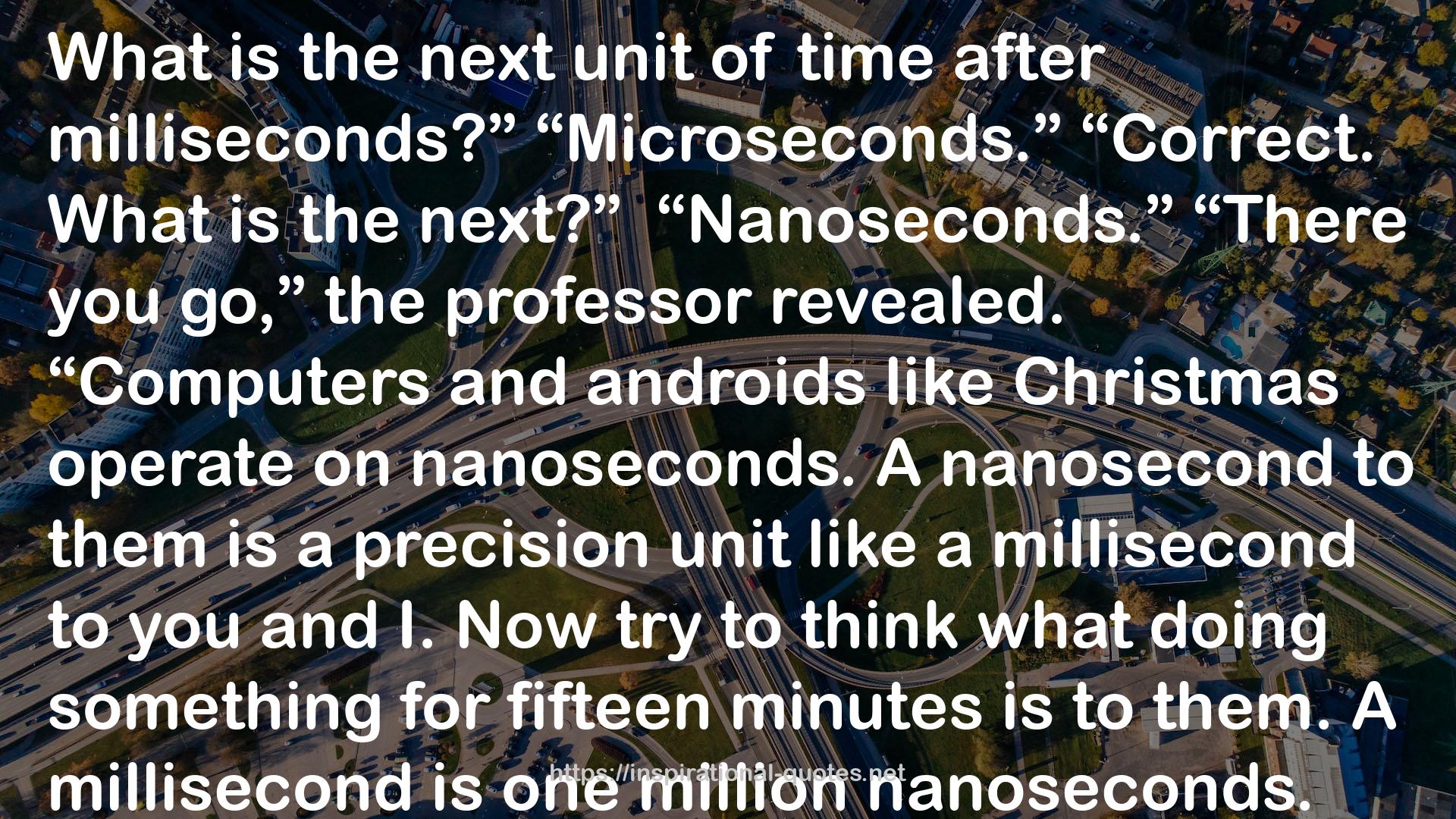" What is the next unit of time after milliseconds?”
“Microseconds.”
“Correct. What is the next?”
“Nanoseconds.”
“There you go,” the professor revealed. “Computers and androids like Christmas operate on nanoseconds. A nanosecond to them is a precision unit like a millisecond to you and I. Now try to think what doing something for fifteen minutes is to them. A millisecond is one million nanoseconds. One second is one billion nanoseconds. A minute is sixty billion nanoseconds. Fifteen minutes equals to nine hundred billion nanoseconds. Multiply that by a million for scale - that's the disparity between a human precision unit and a computer precision unit we first talked about. What do you get? Nine hundred quadrillion nanoseconds. That is ten thousand four hundred seventeen days, one thousand four hundred eighty-eight weeks, three hundred forty-two months. That is twenty-eight point five years. Does that seem like ages to you or what?” (What constitutes "ages" to machines) "
― Alan Chains , Return to Island X
